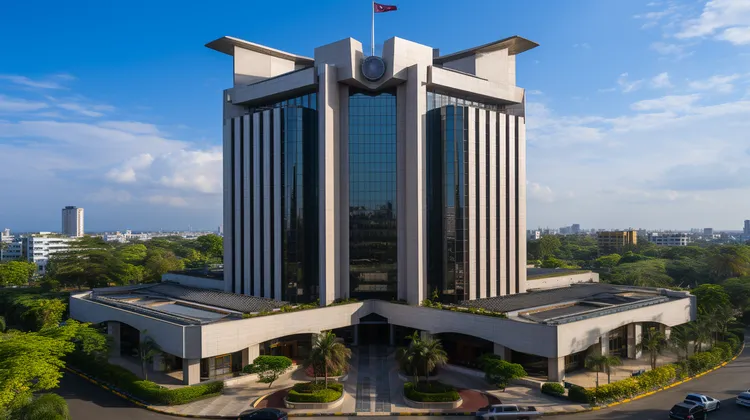
Nigeria’s Central Bank Reverses Crypto Service Ban for Banks
After nearly two years of a stringent policy that prohibited banks and other financial institutions from providing services to cryptocurrency entities, the Central Bank of Nigeria (CBN) has finally lifted the ban. The initial decision to ban banks from facilitating cryptocurrency-related transactions shook the Nigerian FinTech sector, as the country boasts one of the largest markets for digital currencies in Africa. The recent turnaround by the CBN marks a significant milestone for the Nigerian blockchain and fintech industries, indicating a potentially more accepting stance towards the emergent asset class.
The original ban, imposed in February 2021, was met with criticism and concern by both local cryptocurrency advocates and international investors. The CBN’s rationale for the ban was rooted in the need to curb potential financial risks for consumers, citing the volatility of cryptocurrencies, their use in illegal activities, and their potential to undermine the Nigerian financial system. At the time, the CBN instructed all banks and financial institutions to identify and shut down any accounts connected to cryptocurrency exchanges or operations.
This policy caused immediate uproar within the Nigerian economy, particularly among the youth who had embraced cryptocurrencies both as a means of investment and as a way to circumvent the country’s currency instability and high remittance costs. Many expressed that the ban hamstrung innovation and limited opportunities for economic growth in a rapidly evolving digital economy.
During the period of the ban, Nigerian cryptocurrency traders and enthusiasts turned to peer-to-peer (P2P) platforms to facilitate their transactions. Though cumbersome and less secure, these P2P platforms allowed Nigerians to continue engaging with the global cryptocurrency market. The reliance on these platforms also reflected the resilient nature of the cryptocurrency community in seeking alternatives to traditional banking services.
The Central Bank’s reversal of the ban followed a sustained period of dialogue with various stakeholders in the financial and technology sectors. The engagement reportedly helped to educate and inform the regulatory body on the significant measures and industry standards that can be implemented to address concerns related to money laundering, terrorist financing, and consumer protection issues within the blockchain and cryptocurrency space.
In lifting the ban, the CBN has set forth a new set of guidelines and regulatory frameworks meant to address the issues that prompted the initial prohibition. These regulations aim to ensure that banks and financial institutions that choose to engage with cryptocurrency firms do so in a manner that is compliant with existing anti-money laundering (AML) and combating the financing of terrorism (CFT) laws.
Banks are now required to perform due diligence on cryptocurrency clients, maintaining a clear understanding of the nature of their business and ensuring that robust risk management systems are in place. These measures are designed to protect the integrity of the financial system and provide assurance that transactions are monitored for any illicit activities.
With the door once again open for banks to service the crypto sector, there is renewed optimism about the potential for innovation-driven economic growth in Nigeria. The FinTech sector can anticipate a surge of both local and foreign investments, as the policy amendment dramatically improves the business environment for blockchain startups and cryptocurrency exchanges.
Experts believe that the Central Bank’s decision could also pave the way for a more comprehensive and supportive legal framework for digital assets in Nigeria. The clarity and certainty that come with official guidelines are crucial for fostering an environment that encourages investment and development in the sector.
The move by the CBN underscores a growing recognition of the importance of working with the digital currency industry rather than against it. The adoption of this more collaborative approach could position Nigeria as a leader in the African cryptocurrency landscape, encouraging other nations on the continent to reassess their own regulatory stances.
The future looks promising for cryptocurrency adoption in Nigeria, thanks to the CBN’s reversal of its former policy. It marks a significant shift that could see increased mainstream adoption of cryptocurrencies as businesses and consumers gain more confidence in the legal and regulatory support for these assets. As the sector continues to evolve, it will be vital for regulators, industry players, and the Nigerian government to continue their dialogue, ensuring a balanced approach that promotes both innovation and consumer protection.